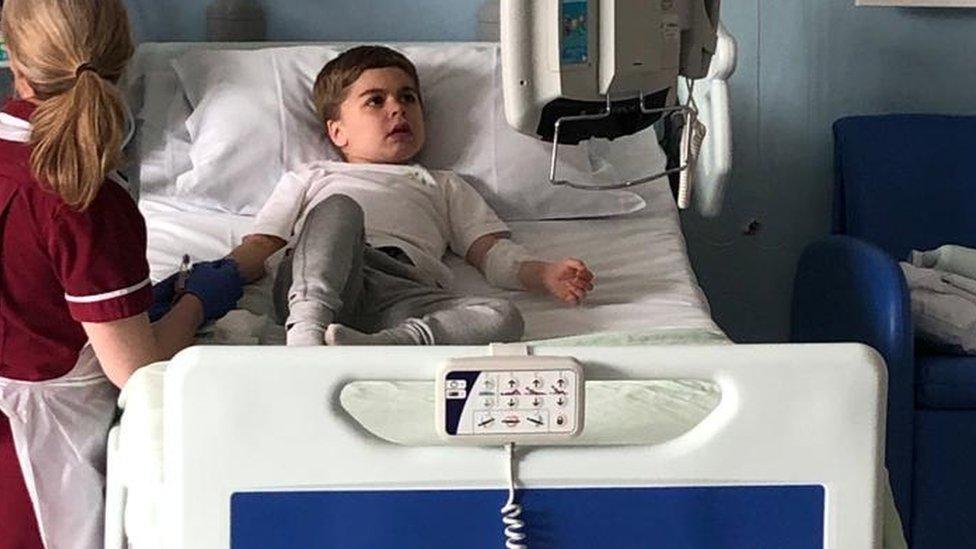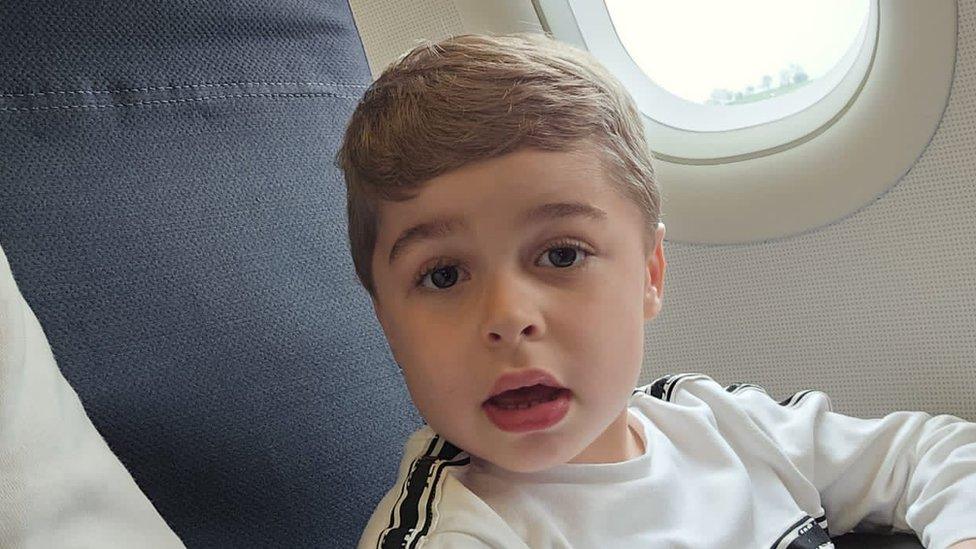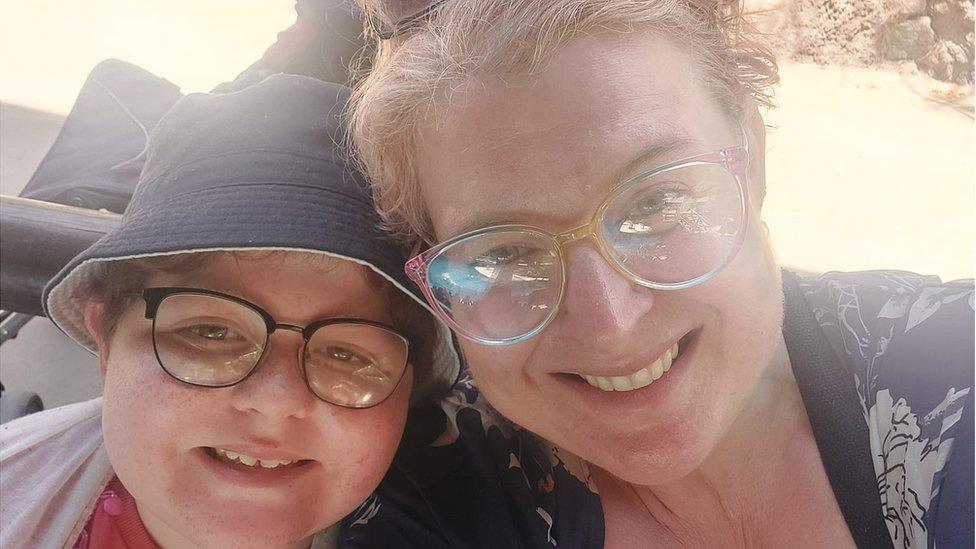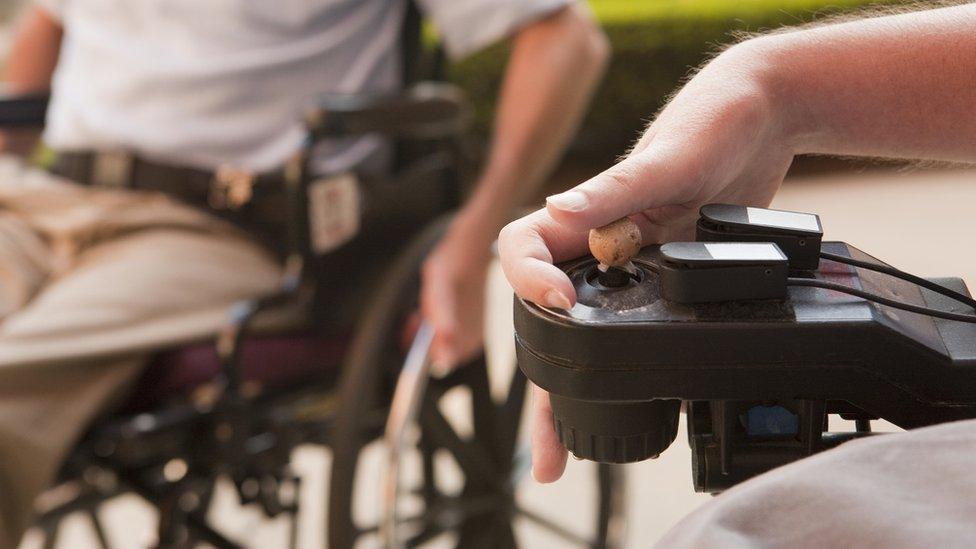Muscular dystrophy: Child racks up 1,200 miles a month for treatment
- Published

Lucy Vers' five-year-old son Elliot has Duchenne, the most common and severe form of muscular dystrophy
Parents of children living with muscular dystrophy say better expertise is needed in Wales to treat it.
Lucy Vers' five-year-old son Elliot has Duchenne, the most common and severe form of muscular dystrophy, external.
The family travel from Newport to Newcastle twice a month for a clinical trial - a 600-mile round trip - in the hope of finding a cure for the disease.
The Welsh government said general consultant specialists are available in every health board in Wales.
The family take the journey as there are currently no neuromuscular consultants in Wales, and therefore it is not possible to conduct clinical trials here.
Two years ago, after Elliot's parents noticed he had some mobility issues, he was eventually diagnosed with Duchenne muscular dystrophy (DMD), a condition that causes all the muscles in the body to gradually weaken.
There is currently no cure and patients are not expected to live beyond their 30s, although some live into their 50s.
"It's pretty devastating. It changes your world upside down," said Ms Vers.

The family travel from Newport to Newcastle twice a month in the hope of finding a cure for the disease
Elliot's family are now campaigning for more Duchenne expertise to conduct clinical trials in Wales, as they are currently facing at least monthly trips to Newcastle for the next three and a half years.
"The reason we go to Newcastle is because this trial opened up and we were offered a space... so we didn't want to lose the opportunity," said Ms Vers.
"Some days we have to go up just for a blood test. So we fly up, we go to the hospital, we take a blood test, and then we have to wait all day for the flight to come home again, which is a lot."
'It's quite traumatic'
Another family from Barry, south Wales, who also have a young child living with Duchenne, said there is a better care structure in England.
Delor Brown said her eight-year-old son Rhodri receives good care in Cardiff, but as there's no neuromuscular consultant in Wales, it can be difficult.
She said for Rhodri's next appointment, in the summer, a consultant they have not seen before is travelling over from Bristol.

Delor Brown's eight-year-old son Rhodri also has Duchenne
"Every time you get a new consultant, you have to tell the story again from the beginning and go through each step again, so it's quite traumatic because you have to repeat it," she added.
Ms Brown believes that Duchenne patients in England have a "much easier experience", whereas "in Wales, you're always waiting for appointments".
According to the UK's leading Duchenne charity, the current situation is "unacceptable", and will cause people in Wales to "miss out on a chance to take part in new and innovative treatment"
"There are serious geographical disparities of DMD care in the UK," said Will Pender from Duchenne UK.
A Welsh government spokesperson said: "When specialist advice on a rare disease is not available consultants will take advice and consult experts elsewhere.
"When it is not possible to open specific research studies in Wales due to their specialist nature, arrangements are in place to ensure Welsh patients are able to access clinical trials in specialist centres outside of Wales, with funding for travel also available.
"We would encourage people to discuss access to research studies with their consultant and clinical teams."
- Published31 January 2023

- Published9 January 2023

- Published3 July 2023
